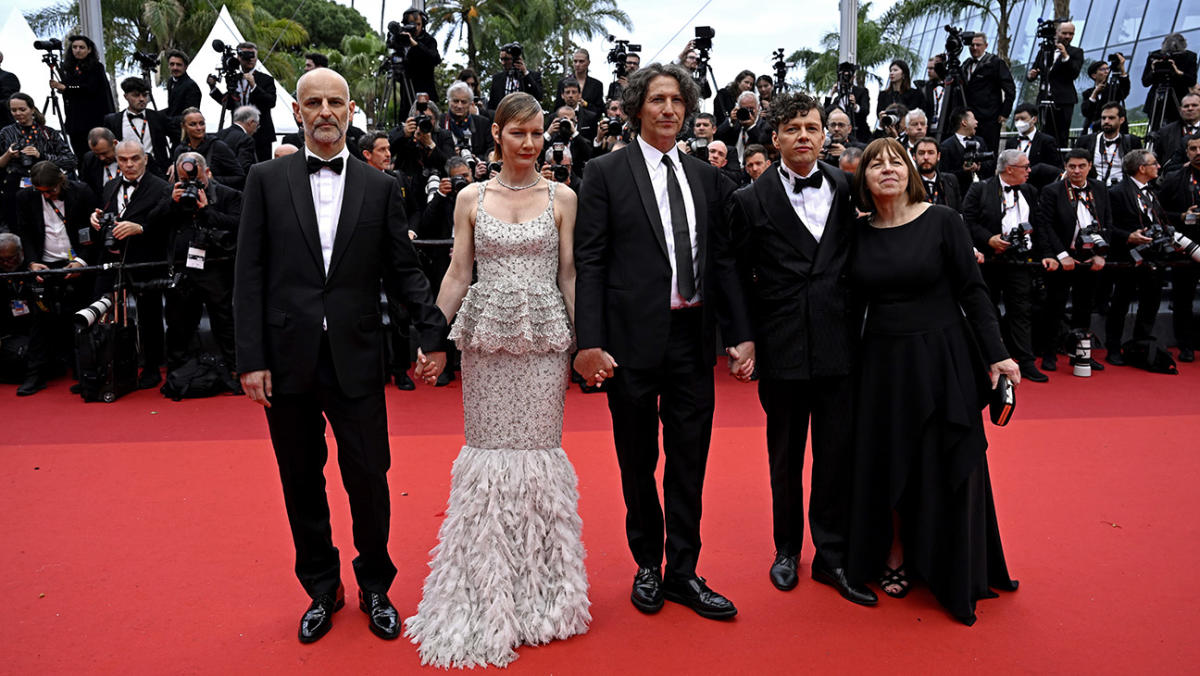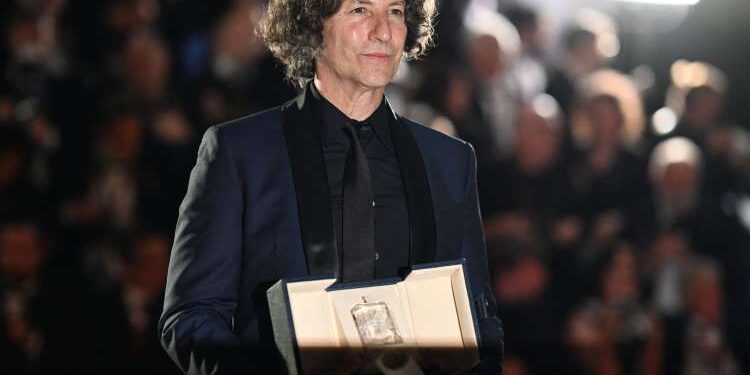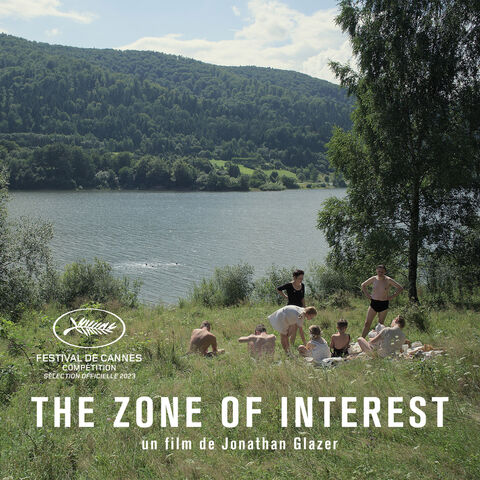The holocaust remains one of the darkest chapters in the history of humanity, and its representation in the cinema is a perilous exercise. Directors who tried to approach this complex subject have often been confronted with an artistic dilemma: how to do justice to unspeakable suffering while avoiding falling into sentimentality or trivialization? Jonathan Glazer, British director renowned for his distinctive visual style, takes up this challenge brilliantly in his latest film “The Zone of Interest”.
Based on the eponymous novel by Martin Amis (died on May 20, the day after the film at 76th Cannes Festival), the film carries the spectators to the insidious universe of Auschwitz, highlighting the domestic life of Commander Rudolf Höss and his wife Hedwig of the time when the SS commanded this extermination camp. Interpreted respectively by Christian Friedel and Sandra Hüller, these characters embody the disturbing duality of those who have committed monstrous acts while leading an apparently ordinary existence.
Jonathan Glazer adopts a daring stylistic approach, combining a precise staging with a neat visual aesthetic. The plans of Lukasz Zal, create an atmosphere of strangeness and discomfort, thus strengthening the emotional impact of the film. At the same time, the immersive sound design of Johnnie Burn, subtly mixing background noises such as distant shots, muffled cries and the subsonic rumble of death machines, reminds spectators the unspeakable horror that takes place in the background.
The Zone of Interest is distinguished by its refusal to give in to the ease of voyeurism or the graphic exploitation of the horrors of the holocaust. Instead, Jonathan Glazer opts for a more subtle approach, letting the images evoke horror without showing them directly. This technique emphasizes the imagination of the spectator, who is thus led to reconstruct the darkest details from the visual and sound clues scattered in the film.
The British director manages to create palpable tension by juxtaposing scenes from the apparently normal daily life of the Höss family with darker and disturbing moments. Children play happily in the pool or Rudolf reads stories to their daughters, give the illusion of an idyllic family setting. However, the subtle visual clues, such as the Rudolf SS uniform and the servants who seem to be prisoners of the camp, constantly recall the sordid reality of their existence.
Jonathan Glazer also favors a minimalist approach to narration, letting the images speak for themselves. He avoids explanatory speeches and superfluous dialogues, allowing the spectator to interpret the scenes according to his own sensitivity and his personal background. This approach underlines the evocative force of cinema as a visual art and offers an immersive and deeply disturbing cinematographic experience.
Within the film The Zone of Interestthe victims of the holocaust remain invisible to the screen, but their presence is felt disturbing throughout the story. The director manages to transmit the tragic fate of the victims through subtle and symbolic elements, thus leaving the spectator to understand the horrors inflicted on them.
A particularly disturbing scene highlights this approach: the wife of Commander Rudolf Höss tries a luxurious fur coat. At first glance, this scene seems harmless, but little by little, the origin of the mantle turns out to be. The spectator made with dread that he belonged to one of the many victims of the holocaust. This contrast between the triviality of the act and the deep meaning of the garment underlines the trivialization of horror within this Nazi society.
Another sequence marks the spirits: Rudolf Höss’s wife says he has discovered a diamond hidden in a tube of toothpaste. She expresses her admiration for the ingenuity of the victims who had to resort to desperate schemes to preserve their property. This apparently anecdotal story reveals the extent of injustice and cruelty inflicted on the victims of the holocaust. It also highlights the total disconnection between the executioners and human suffering.
A key scene of the film implies a meeting between Rudolf Höss and industrialists who discuss the performance of a crematorial oven that they advise to use at the camp. Industrialists are concerned about figures and profits, without worrying about the human tragedy that takes place in Auschwitz. They discuss business, as if human lives were not at stake, as if it were a question of installing any machines in an ordinary factory. This scene highlights the tacit complicity of many economic actors of the time, who took advantage of the concentrationary system without worrying about the annoyed human lives.
Jonathan Glazer skillfully uses these scenes to arouse a deep reflection in the spectator. He underlines the way in which Nazi executioners have dehumanized the victims, reducing them to simple objects to exploit. The actions and words of the characters, although subtle, reinforce the feeling of repulsion and disgust in the face of cruelty and indifference.
The Zone of Interest is therefore distinguished by its ability to make the horror feel without ever showing it directly. By avoiding graphic and shocking images, the film leaves room for the imagination of the spectator, who is thus confronted with the brutal reality of the holocaust in a deeper and personal way.
This daring approach allows the film to create a palpable tension and puts the spectator in a situation of discomfort and discomfort. These people who live normally, right next to a genocide, is a freezing situation. We are outraged by the fact that human beings can accommodate such horrors and pretend not to see them, and worse, take advantage of them for their comfort and well -being.
In addition to its captivating staging, The Zone of Interest is also distinguished by its performance as remarkable actors. Christian Friedel embodies Rudolf Höss with striking accuracy, revealing the fragility and perversity of this complex character. Sandra Hüller, on the other hand, offers a memorable interpretation of Hedwig, subtle depicting the complicity of this woman in the crimes committed by her husband and her total indifference towards the victims of the camp. Their impeccable acting play contributes to the credibility and depth of the characters, thus strengthening the emotional impact of the film.
Finally, the social and historical scope of The Zone of Interest. The film reminds us of the need to confront history and learn from it to prevent such events from happening again. Jonathan Glazer manages to evoke collective guilt and the silent complicity that allowed the Holocaust to perform, while highlighting the individuals trapped in a murderous system.


The Zone of Interest is a film of exceptional intensity and power, which would undoubtedly have deserved to be rewarded for the Palme d’Or at the 76th Cannes Festival. Unfortunately, the jury chaired by Ruben Östlund made a different decision, giving way to a general misunderstanding among spectators and criticisms, and has only awarded this beautiful film that the Grand Prix. During the press conference of the members of the jury who followed the closing ceremony, a recurring question was raised, but unfortunately did not find an answer: why The Zone of Interest Wasn’t he crowned with the prestigious Palme d’Or?
Neïla Driss










